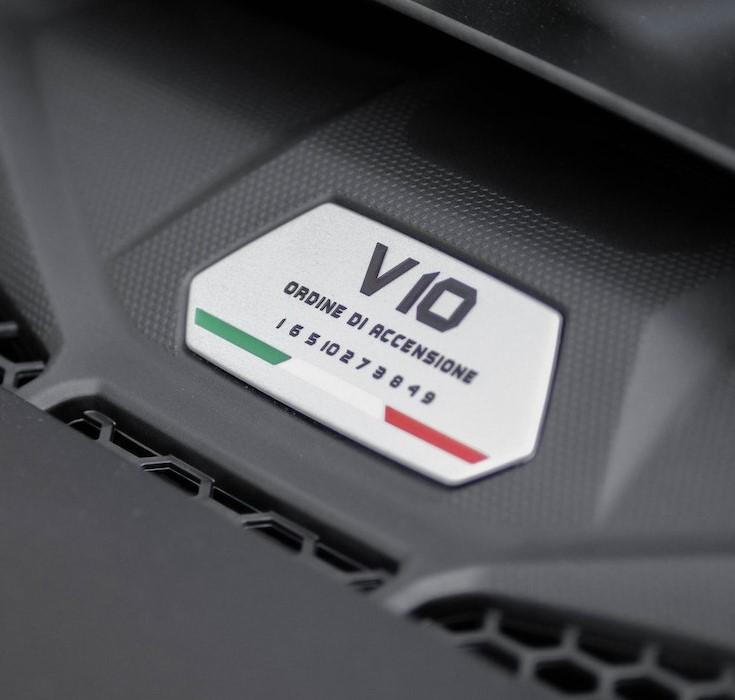Horsepower | What is it and How does it affect car performance
Published Date: 10th Mar 2023
Horsepower: A measure of the power output of a car's engine.
 Buying a new car can be an exciting experience, but it can also be overwhelming, especially if you're not familiar with all the jargon used in the automotive industry. One term that you're likely to come across in your search for a new car is "horsepower." But what exactly does this term mean, and why should you care about its history?
Buying a new car can be an exciting experience, but it can also be overwhelming, especially if you're not familiar with all the jargon used in the automotive industry. One term that you're likely to come across in your search for a new car is "horsepower." But what exactly does this term mean, and why should you care about its history?
Let's start with a brief history of horsepower. The term was first coined by Scottish engineer James Watt in the late 18th century. Watt was working on improvements to the steam engine and needed a way to measure the power output of these machines. He observed that a draft horse could lift 550 pounds of weight one foot off the ground in one second, and he used this as the basis for his definition of one horsepower.
Fast forward to the early 20th century, and the automobile industry was starting to take off. Car manufacturers needed a way to quantify the power output of their engines, and horsepower was a natural choice. The Society of Automotive Engineers (SAE) standardised the measurement of horsepower in the 1920s, and it has been a staple of car marketing ever since.
So why does the history of horsepower matter for modern car buyers? First and foremost, it's a key metric used to describe the performance of a car's engine. The more horsepower a car has, the more powerful its engine is and the faster it can go. For many drivers, horsepower is a crucial factor in their purchasing decision, especially if they're looking for a car with impressive acceleration or top speed.
But horsepower is not the only factor to consider when buying a new car. Other factors like fuel efficiency, handling, and safety are also important. And while a high horsepower rating may be impressive, it doesn't necessarily mean that a car is the best choice for your needs.
Another reason to be familiar with the history of horsepower is that it can help you understand the automotive industry's evolution. As technology has advanced, car manufacturers have found new ways to improve the efficiency and performance of their engines. For example, hybrid and electric cars use a combination of electricity and gasoline (or, in some cases, just electricity) to power their engines. As a result, the traditional measure of horsepower has become less relevant in some contexts, and metrics like kilowatts (kW) and Newton-meters (Nm) are now being used to quantify the power output of these engines.
It's also worth noting that the horsepower rating of a car is not always an accurate reflection of its performance. Different engines can produce different amounts of power based on a variety of factors, such as the number of cylinders, the size of the engine, and the efficiency of the fuel delivery system. In addition, factors like torque and acceleration can also impact a car's performance and should be taken into account when making a purchasing decision.

So what should you look for when buying a new car? The answer will depend on your individual needs and preferences. Horsepower may be a key factor if you're looking for a car with impressive acceleration and top speed. On the other hand, if fuel efficiency and environmental impact are more important to you, then a hybrid or electric car may be a better choice, even if its horsepower rating is lower than a traditional gasoline-powered car.
Ultimately, the history of horsepower is just one piece of the puzzle when it comes to buying a new car. While it's important to understand this metric and its role in the automotive industry, it's equally important to consider factors like fuel efficiency, handling, safety, and overall value for money. By considering all of these factors, you'll be able to make an informed decision and choose a car that meets your needs and fits your budget.
If you're in the market for a new car, it's also important to do your research and compare different models before making a final decision. Consider factors like the car's brand reputation, reliability ratings, and resale value (future residual value), in addition to its horsepower rating and other performance metrics.
One resource that can be especially helpful when shopping for a new car is a reputable car dealership or broker. UK Car Discount has been trading for twenty years and is a trusted car broker that offers a wide selection of new cars at discounted prices. Our experienced team can help you find the perfect car for your needs and budget, and our streamlined purchasing process makes buying a new car easy and stress-free.
In conclusion, understanding the history of horsepower is an important part of being an informed car buyer. While horsepower is a key metric used to describe the performance of a car's engine, it's not the only factor to consider when making a purchasing decision. By taking into account factors like fuel efficiency, handling, safety, and overall value for money, you'll be able to choose a car that meets your needs and fits your lifestyle. And if you're in the market for a new car, don't hesitate to call UK Car Discount on 0161 946 3500 for expert guidance and a great deal.
